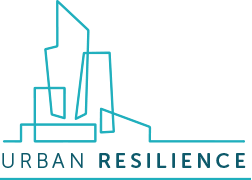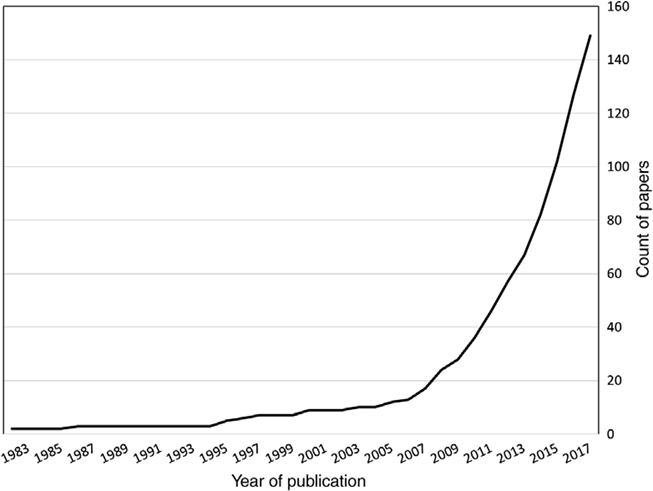Academic interest in the topic of water resilience has a short history but is rapidly increasing. Lucy Rodina provides an invaluable review of the literature, identifying how the literature is narrowly focused and omits some key perspectives. In this piece, Adrian Healy summarises Lucy Rodina’s paper.
In a recent paper[1] Lucy Rodina (The University of British Columbia, Canada) reviews the literature which is beginning to gather on the theme of water resilience. Like many, she argues that water resilience is of increasing importance in the face of rising pressures of urbanisation, changes to the hydrogeological cycle and governance challenges. Where these combine, as in the recent drought in Cape Town, South Africa, urban water systems struggle to cope. Yet, despite the importance of a ‘water resilience’ perspective, the concept currently receives limited attention.
In her review, Rodina identifies 149 papers that include terms relevant to both water and resilience. The literature is spread across disciplines and does not yet form a coherent body of knowledge, with very few papers considering water resilience as a separate sub-topic in its own right. However, the number of papers published in this emerging field has risen rapidly in recent years, demonstrating its relevance and contemporary significance. It appears to be a valuable area of interdisciplinary analysis, linking the boundaries of different disciplines. As such the literature is fragmented, making reviews such as Rodina’s particularly valuable.
FIGURE 1 Cumulative graph of all papers on the topic of water resilience.
Examining the content of the papers, Rodina identifies a strong focus on a small number of themes. More than half of the papers focus on built systems (52%) (the infrastructure on which urban water systems are founded) and the natural eco-hydrological system (17%) or a combination of the two (10%). Just 8% consider water resilience in terms of social processes or social systems (such as communities). Rodina suggests that this reflects an assumption that resilient ‘non-human’ systems (such as pipes, buildings and natural environments) will be of equal benefit to all societal groups. Whereas in practice, the question of distributional equality can be much more complex. This limited consideration of questions of equity is a major shortcoming of the current literature associated with water resilience. Rodina also suggests that whilst the literature reviewed contains numerous features that are identified as associated with strengthening resilience, few provide empirical evidence for this, or consider the trade-offs or relative importance between different features. This raises important questions for the evidence on which policy might be built.
In the literature, responsibility for delivering water resilience – the question of water management and governance – is primarily seen as a managerial role. Almost two-thirds of papers (63%) which considered this placed the responsibility for water resilience with water managers, with a third (33%) arguing that this was the role of governments or other water-related institutions. Despite a wide literature advocating the role of stakeholder engagement and collaborative approaches, it appears that this is regarded as a means for generating managerial consensus rather than an active role in securing water resilience. This is mirrored in the primacy accorded to supply-side approaches to managing water resilience and the more limited literature considering demand-led approaches (with their behavioural and societal connotations).
Water resilience is of rising significance partly because the water infrastructures serving cities are slow to adapt in the face of rising pressures. This lag is visible in the technology adopted, governance approaches, behaviours and attitudes and the structural components of water services. Yet, as complex social, ecological and technological systems of, water services are particularly affected by unpredictable behaviours and non-linear dynamics. Understanding these processes in practice is of real importance, as numerous cases around the world testify. Whilst the literature is advancing our knowledge on the technical front, Rodina argues that our understanding of the factors, practices and governance principles that help to increase the resilience of people, communities or the environment to water-related ‘risk’ remains fractured. In Rodina’s own words, the “Literature remains biased towards technocratic management of infrastructural aspects of resilience building in the water sector”
To overcome this, greater attention must be given to developing understanding of
- More integrative approaches to water management (and connections to wider debates on food and energy security for example)
- Novel governance and institutional arrangements for managing water resilience (which move beyond scalar arguments)
- Issues of equity, participation, fairness and solidarity (the crucial question as to just ‘who’ water resilience is ‘for’)
What is particularly apparent from Rodina’s review of the existing literature, is that as a society of researchers we remain shackled to a particular worldview as to the manner in which urban water services are delivered and the levels of service that constitute a ‘resilient’ urban water function. Whether we should give consideration to challenging that consensus is a core question as we move the discussion on water resilience forwards.
Dr. Adrian Healy is a UKRI Future Leaders Fellow. All views expressed are his own.
[1] Rodina, L. (2019) Defining “water resilience”: Debates, concepts, approaches, and gaps. WIREs Water https://doi.org/10.1002/wat2.1334

